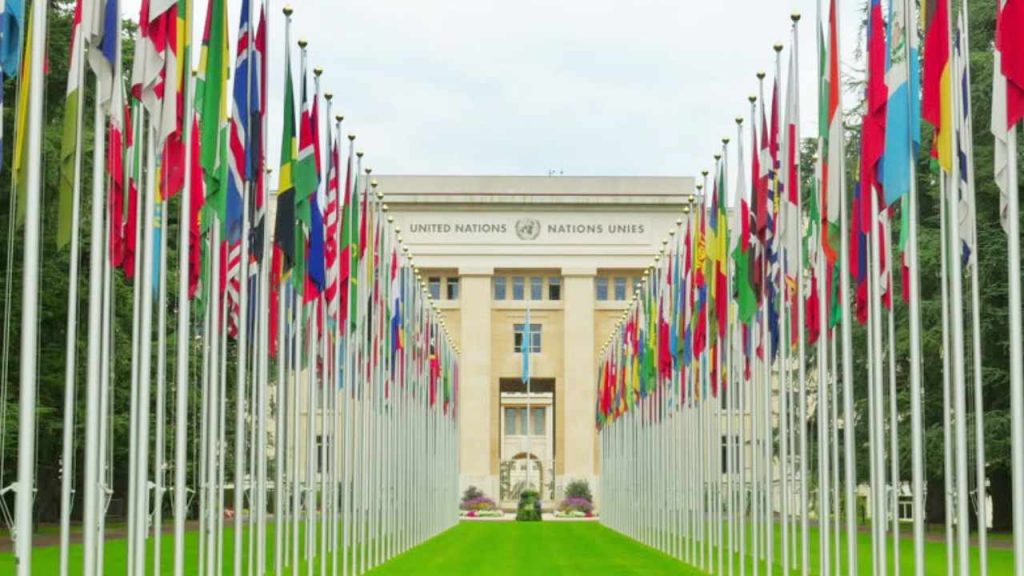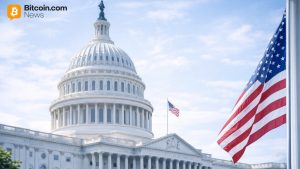UN Agency Urges Authorities to Curb Cryptocurrency Expansion in Developing Countries – Regulation Bitcoin News

A United Nations trade body has recommended a set of policy actions to “curb the expansion of cryptocurrencies in developing countries.” The intergovernmental group stressed that if cryptocurrencies become a widespread means of payment, it could jeopardize the monetary sovereignty of countries.
UN Trade Body’s Crypto Policy Recommendations
The United Nations Conference on Trade and Development (UNCTAD) urged authorities in developing countries worldwide to take action to prevent the widespread use of cryptocurrencies last week.
UNCTAD is a permanent intergovernmental body established by the United Nations General Assembly in 1964. It is part of the U.N. Secretariat. The group reports to the U.N. General Assembly and the Economic and Social Council. UNCTAD has 195 member states and 204 projects in 70 countries, its website shows.
“Global use of cryptocurrencies has increased exponentially during the Covid-19 pandemic, including in developing countries,” the group noted. “While these private digital currencies have rewarded some, and facilitate remittances, they are an unstable financial asset that can also bring social risks and costs.”
The intergovernmental body detailed:
If cryptocurrencies become a widespread means of payment and even replace domestic currencies unofficially (a process called cryptoization), this could jeopardize the monetary sovereignty of countries.
“While cryptocurrencies can facilitate remittances, they may also enable tax evasion and avoidance through illicit flows, just as if to a tax haven where ownership is not easily identifiable,” UNCTAD described. “In this way, cryptocurrencies may also curb the effectiveness of capital controls, a key instrument for developing countries to preserve their policy space and macroeconomic stability.”
The trade body explained that it has released three related policy briefs. One, published on June 13, outlines the high cost of leaving cryptocurrencies unregulated. Another, published on June 22, discusses public payment systems in response to the financial stability and security risks of cryptocurrencies. The third brief, published on Aug. 10, focuses on how cryptocurrencies can undermine domestic resource mobilization in developing countries.
One country that has adopted bitcoin as legal tender alongside the U.S. dollar despite repeated warnings by the International Monetary Fund (IMF) is El Salvador. The country has bought 2,381 bitcoins for its treasury since BTC became legal tender in September last year.
UNCTAD has recommended a set of policy actions, stating that it “urges authorities to take the following actions to curb the expansion of cryptocurrencies in developing countries.”
The first recommendation is to “Ensure comprehensive financial regulation of cryptocurrencies through regulating crypto exchanges, digital wallets, and decentralized finance, and banning regulated financial institutions from holding cryptocurrencies (including stablecoins) or offering related products to clients.”
Secondly, authorities should “Restrict advertisements related to cryptocurrencies,” “Provide a safe, reliable, and affordable public payment system adapted to the digital era,” and “Agree and implement global tax coordination regarding cryptocurrency tax treatments, regulation, and information sharing.” The last recommendation urges authorities to:
Redesign capital controls to take account of the decentralized, borderless and pseudonymous features of cryptocurrencies.
What do you think about the U.N. Trade body urging authorities in developing countries to curb the widespread use of cryptocurrencies? Let us know in the comments section below.
Image Credits: Shutterstock, Pixabay, Wiki Commons, lev radin
Disclaimer: This article is for informational purposes only. It is not a direct offer or solicitation of an offer to buy or sell, or a recommendation or endorsement of any products, services, or companies. Bitcoin.com does not provide investment, tax, legal, or accounting advice. Neither the company nor the author is responsible, directly or indirectly, for any damage or loss caused or alleged to be caused by or in connection with the use of or reliance on any content, goods or services mentioned in this article.














